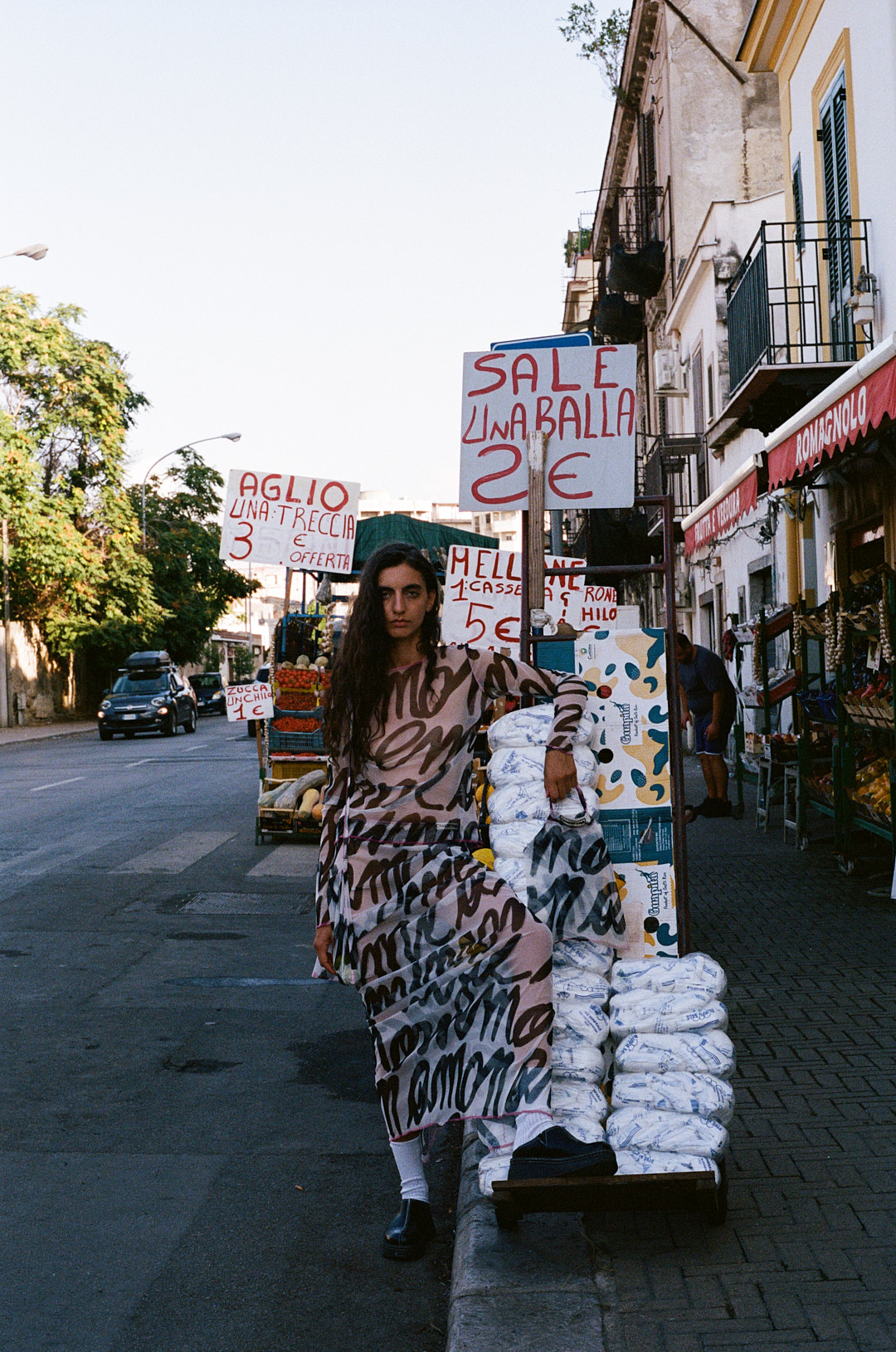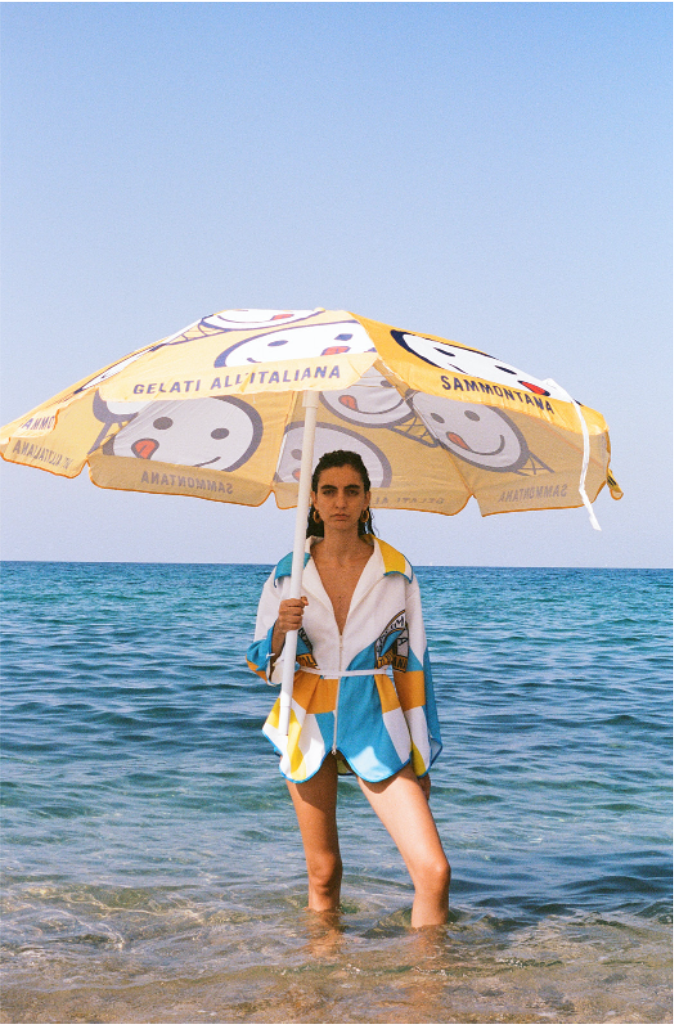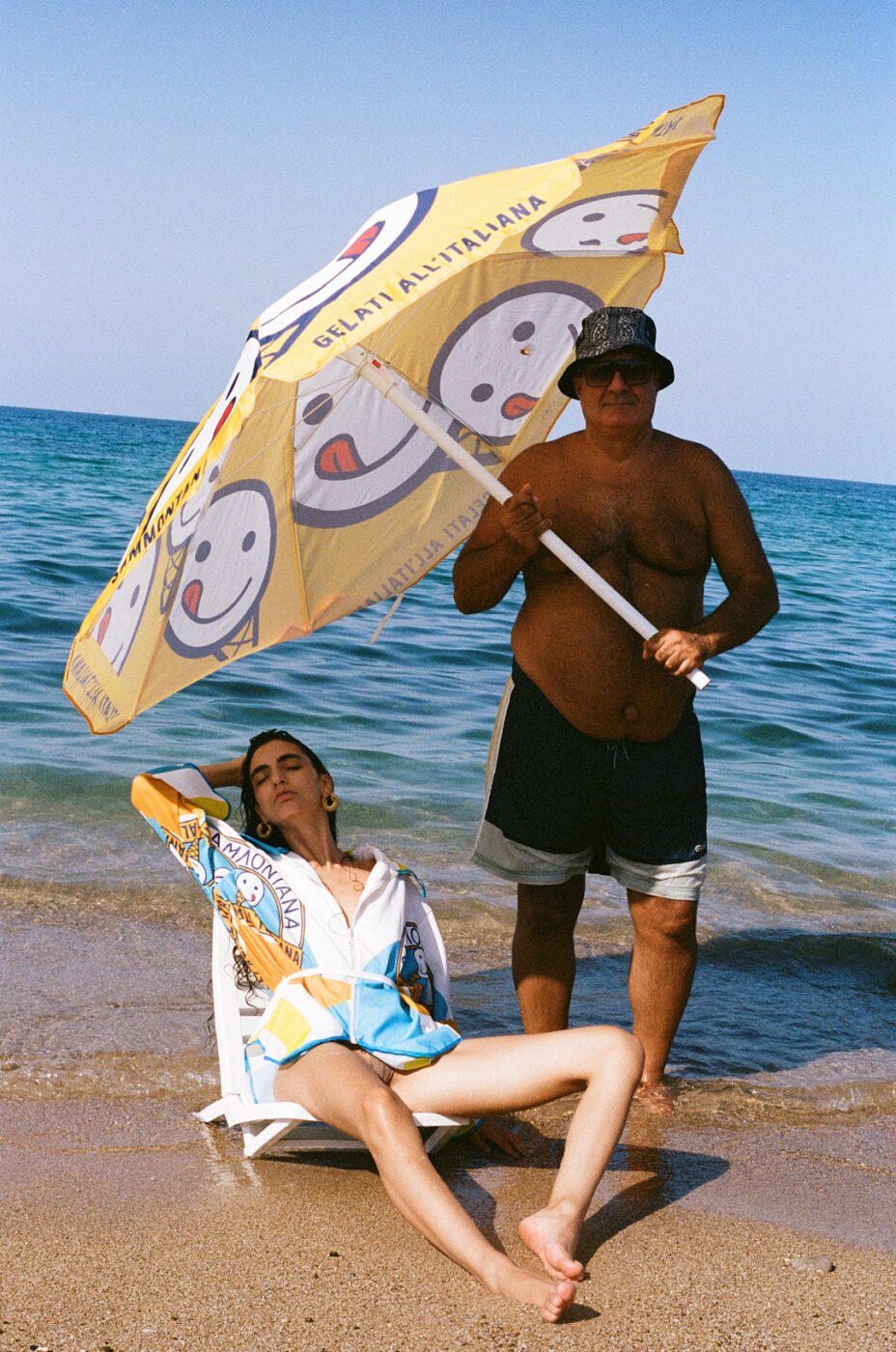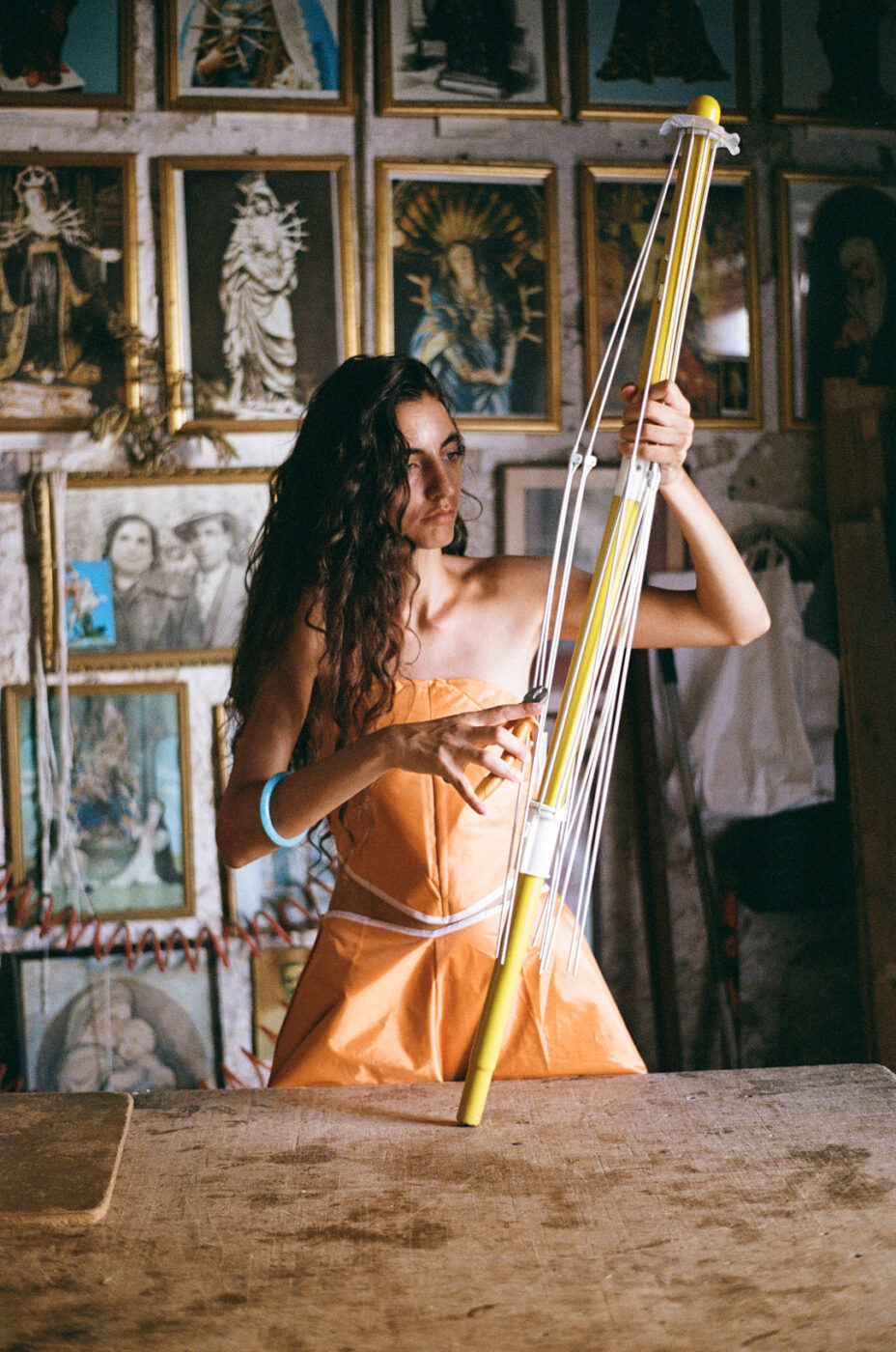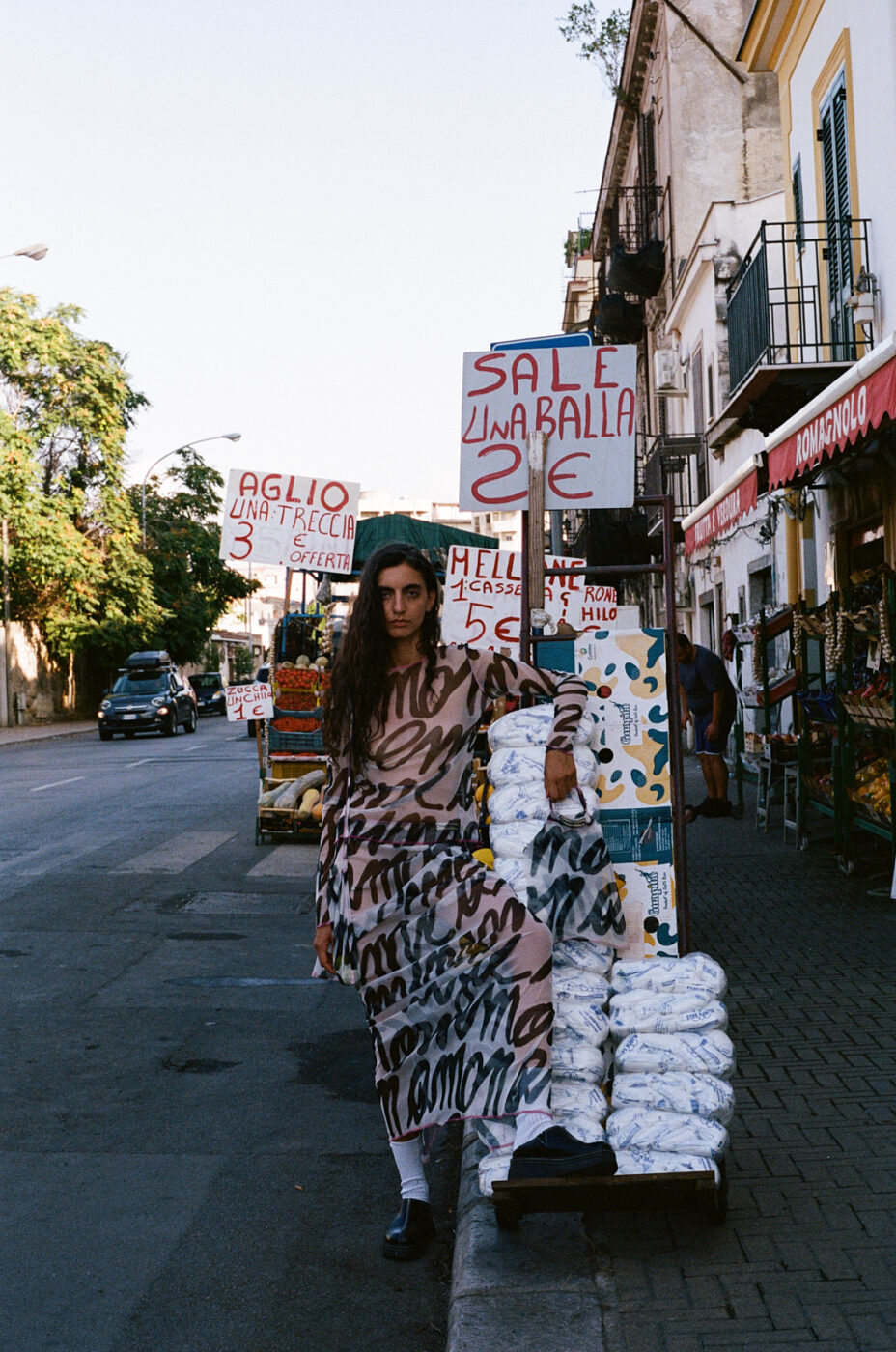“Wanna bet I could turn one of those into a jacket?”
It was a wind-lashed summer day in southern Sicily, near the Isola delle Correnti, the southernmost tip of the island, where dramatic currents come from the meeting point of the Ionian and Mediterranean Seas. One of Cristina Falsone’s favorite spots.
She and her friends were sprawled on the beach, watching the beach umbrellas bend and flap like sails in a storm. To anyone else, they were just sun-bleached polyester. To the young designer, they looked like potential.
By the end of the week, one had, in fact, become a jacket.
It certainly helps that Cristina has the training to back up her self-imposed challenges.
With a PhD in progress at the University of Campania Luigi Vanvitelli in Made in Italy: Identity, Innovation and Sustainability, she’s shown her work at Fashion Revolution Italia, Fondazione Pistoletto, IUAV Venice, and OpenDot Milan.
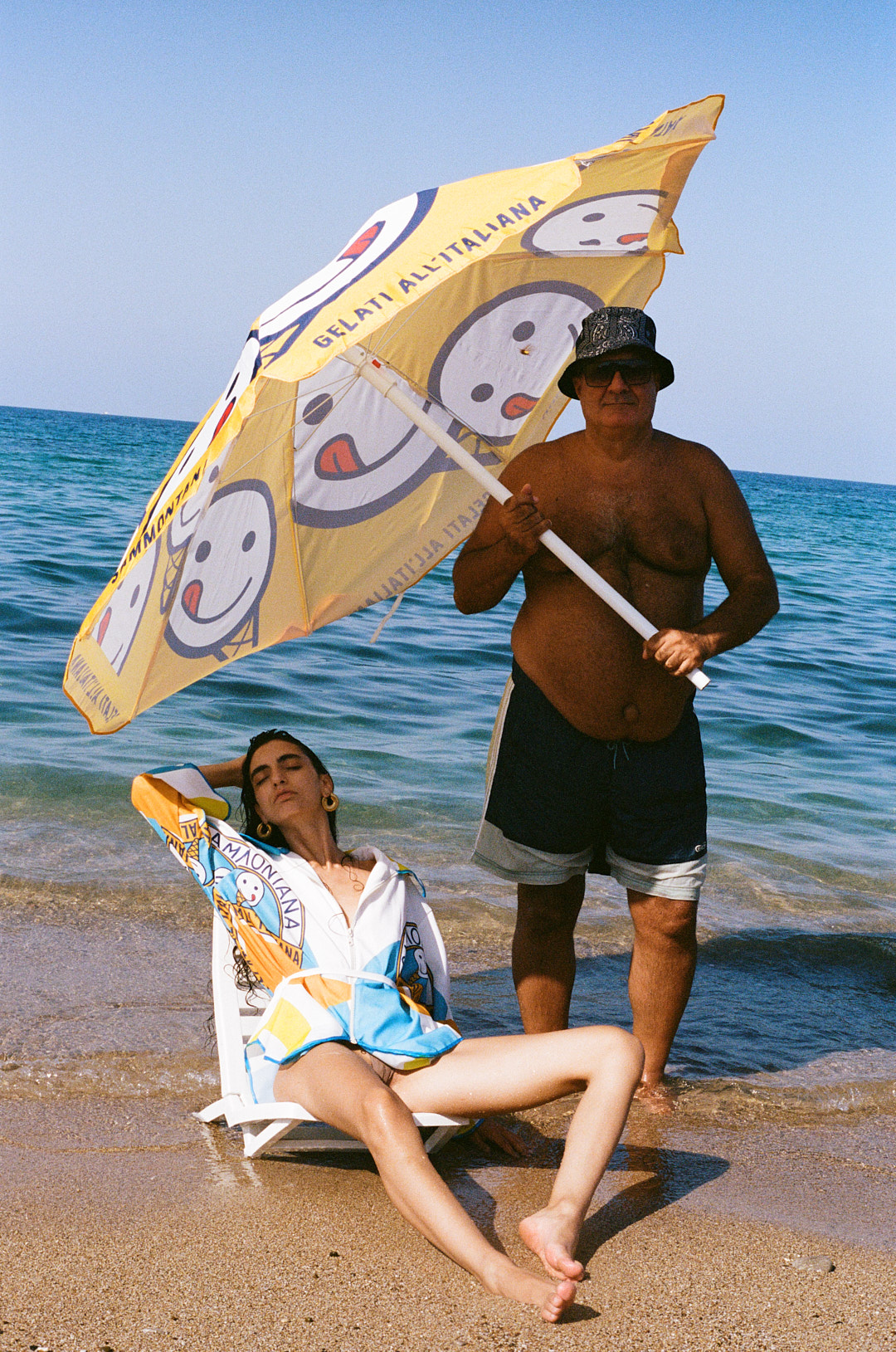
Her label, Canicattiva, is a twist on her hometown’s name: Canicattì, a town of 35,000 in Sicily’s Agrigento province, where she “grew up surrounded by tailoring” thanks to a seamstress mother and grandmother who was one too. “But the name also carries a deeper message: that to make something, you sometimes have to be a little rebellious [cattiva means ‘naughty’ or ‘bold’ in Italian],” she tells me. “It plays with both sound and sense, an echo of my energy, of being always active (attiva).”
That half-joking bet on the beach became Parasuli—a collection of garments made from discarded umbrellas, each one reworked into a second life. Cristina has created about 15 pieces so far and is now expanding into capes, skirts, and bodices. There’s no website yet, but the pieces can be purchased directly from Cristina upon private request.
“I got so many compliments on the first jacket from fellow students and creatives,” Cristina says. “So I kept going.” And, after years of study and internships across Italy, she returned to Sicily. “Being back allowed me to connect more deeply with my local community.”
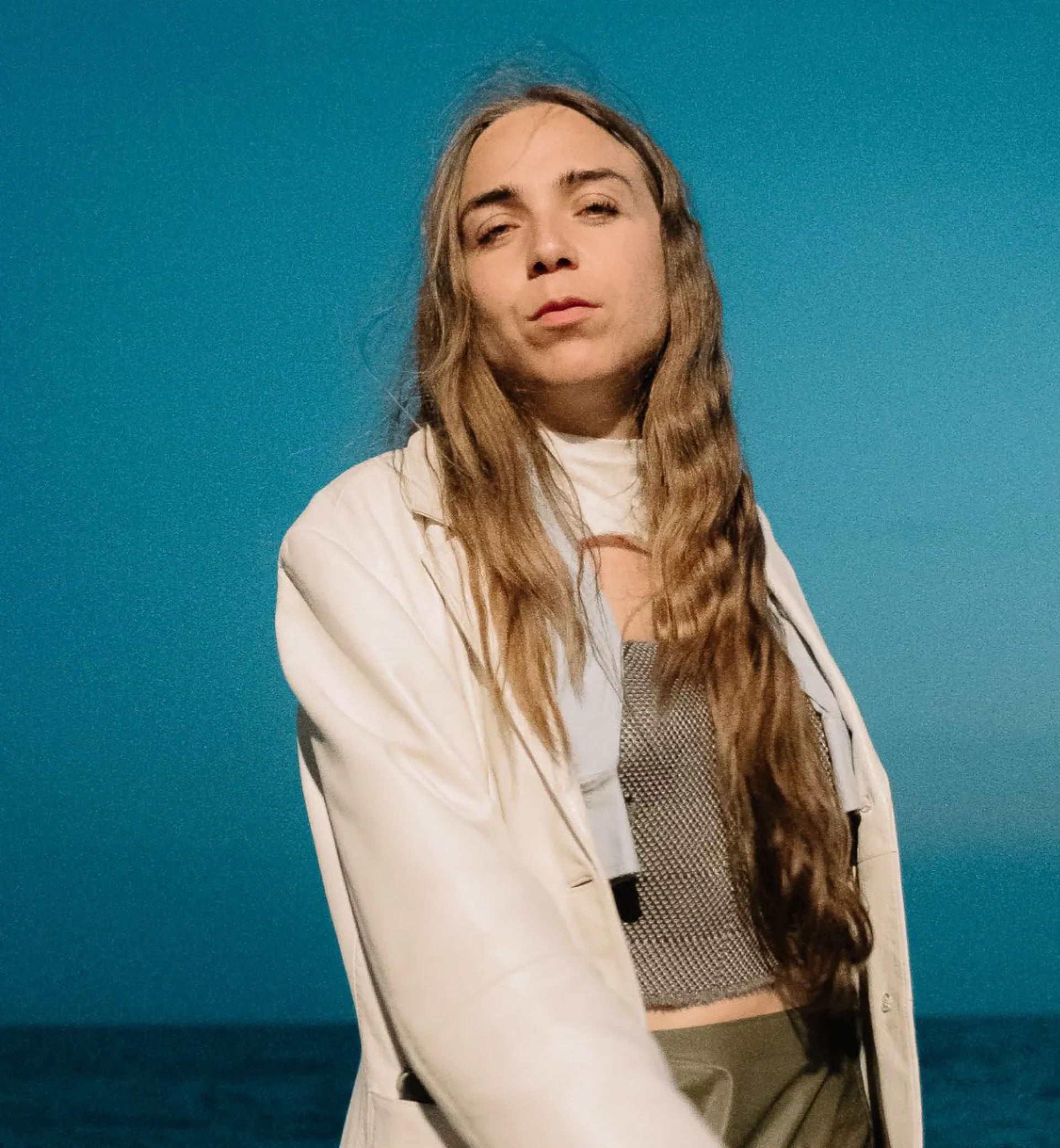
Designer Cristina Falsone
Through a partnership with Team Spiagge Pulite (Clean Beaches Team) in Agrigento, Cristina launched a call to action encouraging local residents to donate old umbrellas. Many of these ended up in Parasuli. “Even my uncle gave me one,” she says, laughing. “I have a special attachment to it because I actually used to lie under that umbrella as a kid. It has the Lipton iced tea logo on it.”
Sustainability is, of course, central to Parasuli. According to Legambiente’s 2025 Beach Litter report, plastic accounts for 77.9% of waste found on Italian beaches, with 56,168 items collected across 63 sites—averaging 892 pieces per 100 meters. Notably, 28% of these beaches were classified as “dirty” or “very dirty,” a significant increase from 6.6% in 2024. (If you have an old or broken beach umbrella and can’t get it to Cristina, make sure to bring it to a recycling center, where it can be properly processed.)
Reflecting on the fashion industry’s own role in environmental degradation, Cristina says, “My collection won’t solve the problem, but it’s a small counter-movement. A tiny fashion revolution, you could say.”
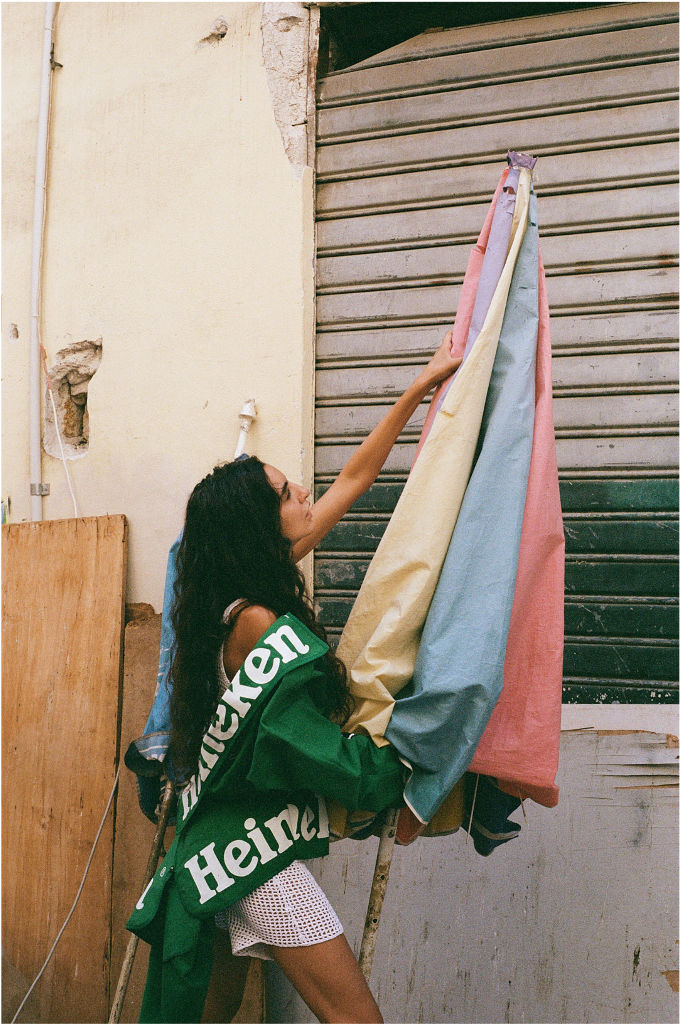
Every Parasuli piece is upcycled and entirely unique, and without standard patterns to follow, each garment becomes its own puzzle. “That’s exactly what makes the creative process so exciting,” Cristina says. “Every phase is an opportunity to experiment and find new solutions, from shaping the form to working with different materials.”
She credits her mother as both collaborator and compass. “Thanks to her experience and support, I’m able to bring my ideas to life in a way that’s both tangible and finely finished,” she explains. “I strongly believe in the value of handmade craftsmanship and in collaborating with people like my mother, who has extensive experience in bespoke tailoring.”
Parasuli is many things but above all, it’s a tribute to the Italian summer. The name itself is a wordplay: para (from the Greek, meaning “next to” or “beyond”) and suli (“sun” in Sicilian dialect). It’s also the local word for beach umbrella.
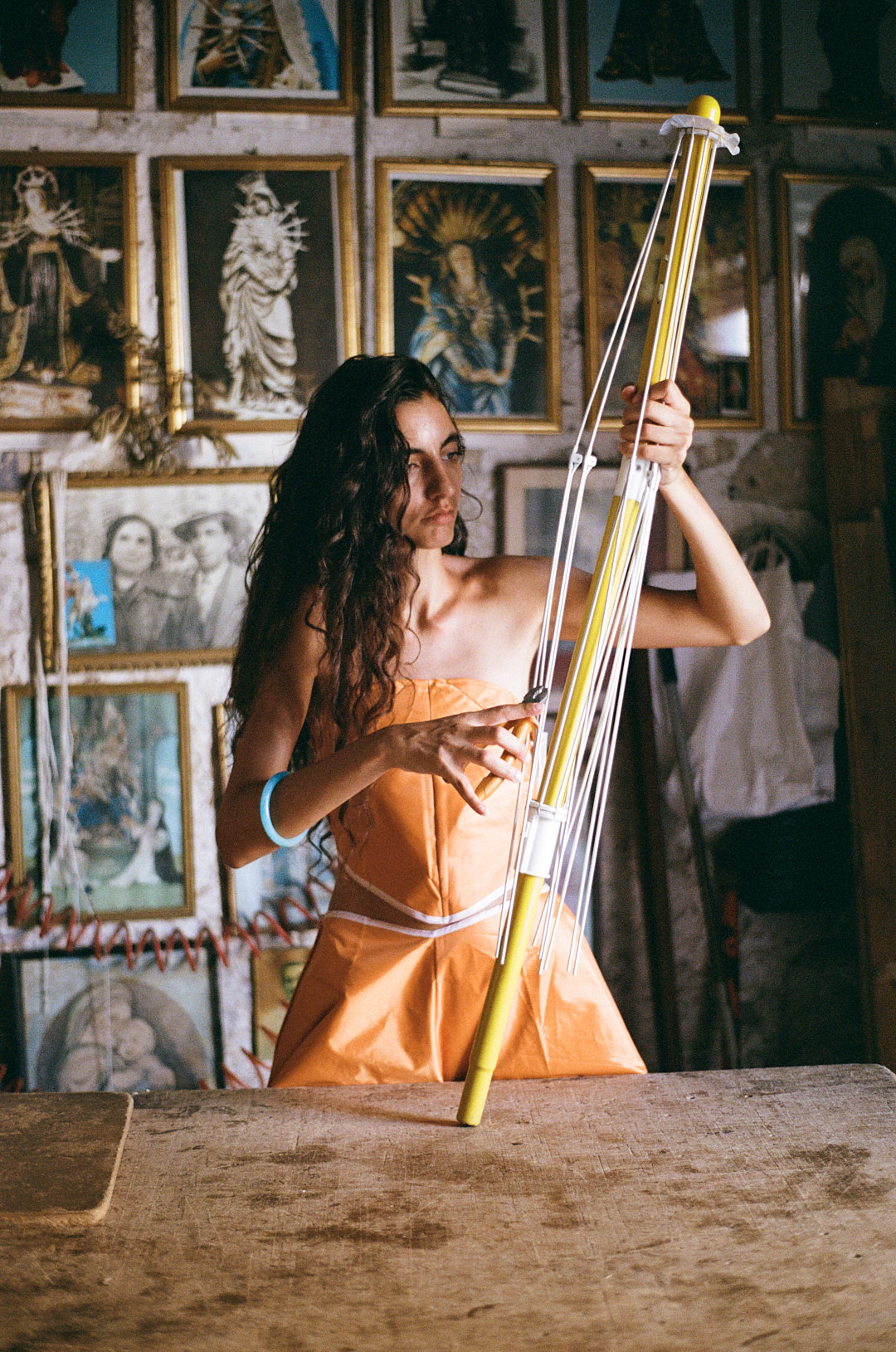
“To me, the umbrella is one of the ultimate symbols of summer,” Cristina expounds. “It gives us the freedom to claim our own space at the beach, offers protection, shade, a moment of relief. It’s also deeply Mediterranean—you don’t just find it at the beach, but with fruit vendors on the street or shading men playing cards in a town square. The umbrella creates a space of gathering and community. That, combined with its geometric form, fascinates me.”
“Passamo l’estate su una spiaggia solitaria,” Franco Battiato sings on Cristina’s favorite summer track, “Summer on a Solitary Beach”: “We spend the summer on a solitary beach.” And what could be better than that? A quiet beach, a shady umbrella, and the thought that one day it could be worn as a jacket, a scrap of summer keeping you warm even when the season’s long gone.
